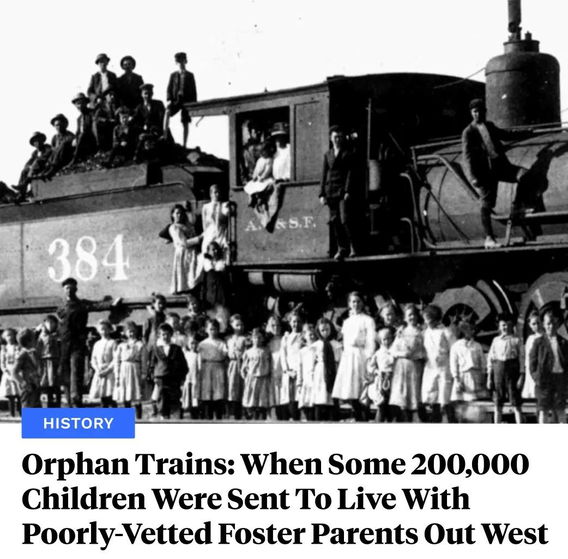Between 1854 and 1929, about 200,000 children were shipped off from East Coast cities to rural families via "orphan trains." A precursor to the modern American foster care system, the Orphan Train Movement was designed to remove orphaned, homeless, and impoverished children from city slums and streets and place them in nurturing homes out west, where the children in turn would be able to help rural families run their farms. But this system didn't always work out as planned, as the foster families were often poorly vetted. In order to get a child from an orphan train, potential adopters only needed a letter of recommendation from their pastor and a justice of the peace — and it's unlikely that even this small requirement was enforced.
What's more, many children shipped out west via "orphan trains" weren't orphans at all — in fact, about 25 percent of them still had two living parents. As one former orphan train rider recalled, "I'd just finished eating and this matron came by and tapped us along the head. 'You're going to Texas. You're going to Texas.' Well, some of the kids, you know, clapped and laughed. When she came to me, I looked up. I said, 'I can't go. I'm not an orphan. My mother's still living. She's in a hospital right here in New York.' 'You're going to Texas.' No use arguing."
What's more, many children shipped out west via "orphan trains" weren't orphans at all — in fact, about 25 percent of them still had two living parents. As one former orphan train rider recalled, "I'd just finished eating and this matron came by and tapped us along the head. 'You're going to Texas. You're going to Texas.' Well, some of the kids, you know, clapped and laughed. When she came to me, I looked up. I said, 'I can't go. I'm not an orphan. My mother's still living. She's in a hospital right here in New York.' 'You're going to Texas.' No use arguing."
Write a comment...
Sort by
